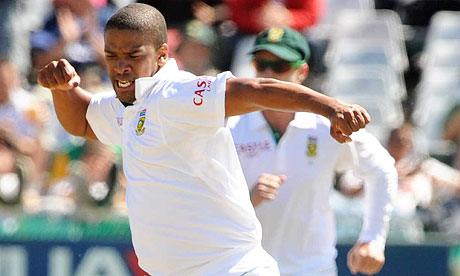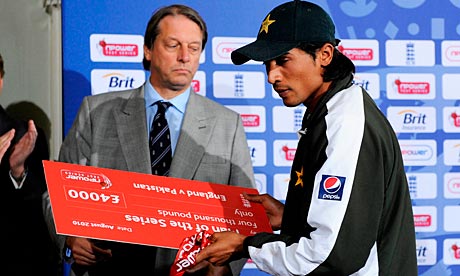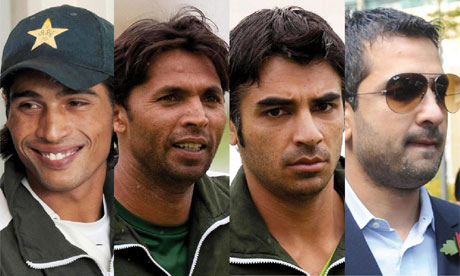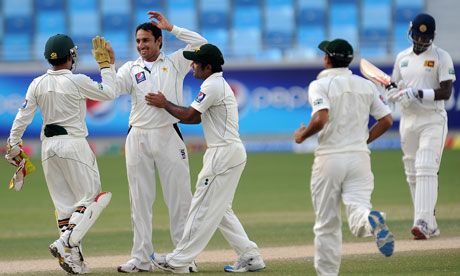Test cricket is still alive!
Who says that Test cricket is dying? Those who missed the Test series between South Africa and Australia (where were you?) may think otherwise, but those who tuned in will remember it for some time.

Dale Steyn celebrates Shane Watson's wicket at Cape Town during an epic Test series between South Africa and Australia
It was a gripping contest between bat and ball in conditions offering something to both teams, where fortunes swung back and forth like a pendulum and in the end, a two Test series just wasn’t enough.
The series kicked off with the first day contest between visiting captain Michael Clarke and Dale Steyn, where the latter was trying to knock off the former’s head. It was worth watching and was a memorable contest (maybe not as memorable as Donald Vs Atherton in Nottingham, but memorable nonetheless), and the series ended with a fantastic run chase by Australia.
That they amassed over 300 on a difficult fifth day track was hugely impressive. It was made possible by 18 year old debutant Pat Cummins who took six second innings wickets and dragged the Aussies back into the contest (recalling their heroics in Port Elizabeth in 1997).
The pitches and the quality of bowling from both sides ensured that there was enough to keep everyone interested, something which hasn’t been seen frequently in recent times. This series is in contrast to the one sided matches being played in India between two unmatched sides (India and West Indies) in conditions heavily favouring the home side. Although, West Indies are showing some fight in the final Test.
Test cricket needs such matches and series as that in South Africa, with contests within contests – champion bowlers against champion batsmen. Above all it needs sporting and result oriented pitches to attract viewers.
A few days back I read an article on Cricinfo mentioning the death of Test cricket after witnessing the empty Eden Gardens stadium in Kolkata for the India Vs West Indies Test match. No doubt the current West Indies side is not a shadow of their glorious past, and crowds won’t flock in to watch them.
But maybe the BCCI also needs to see the pitches in South Africa, England and Australia to know that it’s not Test cricket that is dying.
Rather it is dull, flat or underprepared spinning pitches in India, along with an over crowded calendar of bogus matches which has killed everyone – from the genuine fast bowlers to the spectators.






